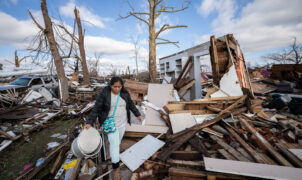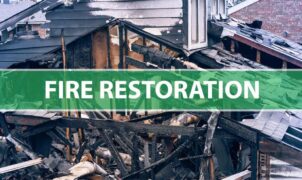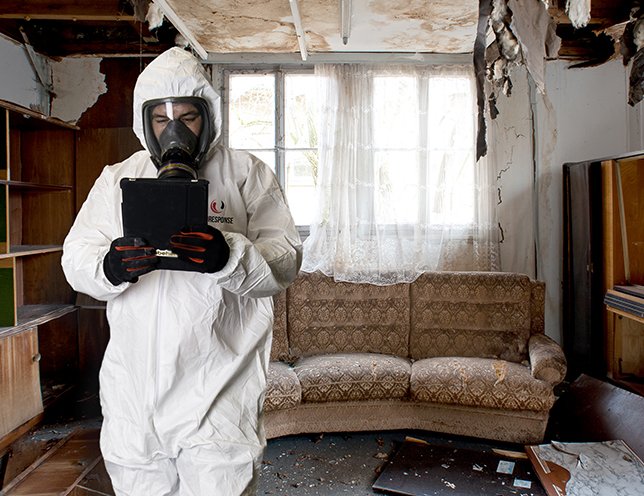
In the intricate world of real estate and property ownership, unexpected disasters can strike, leaving homes and commercial spaces in shambles. Whether it’s a fire, flood, mold infestation, or any other unfortunate event, the aftermath can be overwhelming. This is where the expertise of professional property restoration comes into play. In this comprehensive guide, we delve into the realm of professional property restoration, exploring its importance, processes, benefits, and the role it plays in restoring value and comfort to properties.
Understanding Professional Property Restoration
Professional property restoration encompasses a range of specialized services aimed at bringing damaged properties back to their original state or even better. These services involve the assessment, cleanup, repair, and reconstruction of structures and contents affected by various types of disasters. The primary objective is to restore properties to a safe, functional, and aesthetically pleasing condition while minimizing the disruption and stress for property owners.
The Importance of Timely Restoration
Prompt restoration is crucial to mitigating the impacts of disasters. Here’s why:
- Preventing Further Damage: Swift action prevents secondary damage caused by lingering water, smoke, or mold.
- Health and Safety: Restoration addresses health hazards and ensures the safety of occupants.
- Preserving Value: Timely restoration maintains the property’s value and prevents further depreciation.
- Reducing Costs: Procrastination can lead to higher repair costs and potential legal issues.
The Restoration Process
Professional property restoration involves a systematic process to ensure efficient and effective recovery:
1. Assessment and Evaluation
Experts assess the extent of damage, identifying structural and content issues, health risks, and required repairs.
2. Mitigation
Immediate actions are taken to prevent further damage, such as water extraction, boarding up windows, or tarping roofs.
3. Cleanup and Decontamination
Thorough cleaning and disinfection remove contaminants, odors, and harmful substances left behind by disasters.
4. Restoration and Repairs
Skilled professionals repair and restore damaged structures, materials, and contents using advanced techniques and materials.
5. Reconstruction
For severe damage, reconstruction involves rebuilding areas that are beyond repair, following local building codes and standards.
6. Final Inspection
A comprehensive assessment ensures all aspects are restored to pre-disaster conditions, ensuring safety and functionality.
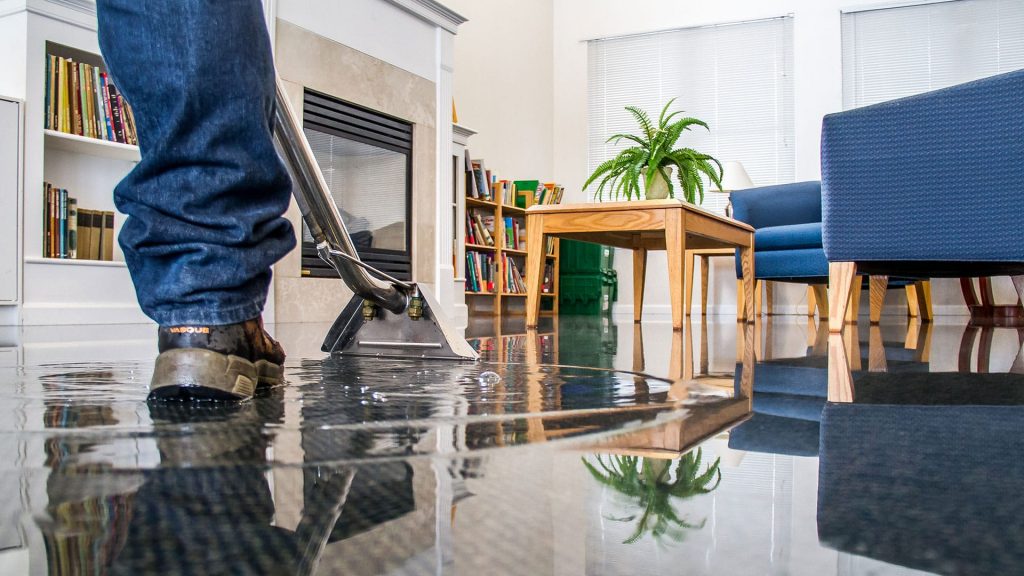
The Benefits of Professional Property Restoration
- Expertise: Restoration professionals are trained in handling various disasters, ensuring effective solutions.
- Time Efficiency: Experience and resources lead to quicker recovery, minimizing downtime.
- Safety: Proper restoration ensures properties are safe for occupants and workers.
- Insurance Assistance: Restoration companies often assist in dealing with insurance claims and documentation.
- Value Preservation: Quality restoration maintains or increases property value.
- Stress Reduction: Professionals handle the intricate process, easing the burden on property owners.
Choosing the Right Restoration Partner
Selecting the right restoration company is crucial. Consider their experience, certifications, references, and services offered.
- service, and sustain client trust.
- Certifications and Training: Verify if their technicians hold relevant certifications from recognized industry organizations.
2. Reputation and Reviews
A company’s reputation speaks volumes about its reliability and service quality. Research:
- Online Reviews: Read reviews and testimonials from previous clients to gauge their satisfaction and overall experience.
- References: Request references from the company and reach out to past clients to inquire about their experience working with them.
3. Response Time and Availability
Emergencies require swift action. A restoration partner should be:
- Available 24/7: Disaster doesn’t wait for convenient hours. Ensure the company offers round-the-clock emergency services.
- Quick Response: Ask about their average response time to emergencies. Faster response often leads to better mitigation and minimized damage.
4. Services Offered
Different disasters may require various restoration services. Ensure the company provides the specific services you need, such as:
- Emergency Mitigation: Rapidly addressing immediate threats to prevent further damage.
- Cleanup and Decontamination: Thoroughly cleaning and sanitizing affected areas.
- Structural Repairs: Skilled restoration of damaged structures.
- Content Restoration: Salvaging and restoring valuable possessions.
5. Licensing and Insurance
A reputable restoration company should be licensed and insured:
- Licensing: Check if the company holds the necessary licenses to operate in your area.
- Insurance: Verify that they carry liability insurance and worker’s compensation coverage to protect you and their employees during the restoration process.
6. Transparency and Communication
Open communication is vital throughout the restoration process. Choose a company that:
- Provides Clear Estimates: Offers detailed, transparent estimates for the restoration work.
- Keeps You Informed: Communicates progress, challenges, and changes during the restoration process.
7. Technology and Equipment
Advanced technology and state-of-the-art equipment can greatly enhance the restoration process. Inquire about:
- Tools and Equipment: Ask about the type of equipment they use for various restoration tasks.
- Innovation: A company that invests in the latest restoration technology shows a commitment to efficiency and quality.
8. Environmental Considerations
Responsible restoration includes environmentally-friendly practices. Ask about:
- Eco-Friendly Practices: Inquire if the company follows sustainable restoration practices and disposes of waste responsibly.
9. Cost and Payment
While cost is a factor, it shouldn’t be the sole determinant. Obtain detailed quotes and consider:
- Quality vs. Cost: Balancing competitive pricing with high-quality work is crucial.
- Payment Options: Inquire about their payment terms and options.
10. Trust Your Instincts
Lastly, trust your instincts when interacting with the restoration company. If something feels off or too good to be true, consider it a red flag and explore other options.
Choosing the right restoration partner requires careful research and due diligence. By considering these factors and asking the right questions, you’ll be better equipped to make an informed decision that leads to successful property restoration and recovery. Remember, the restoration partner you choose can make a significant difference in the outcome of your property’s restoration journey.
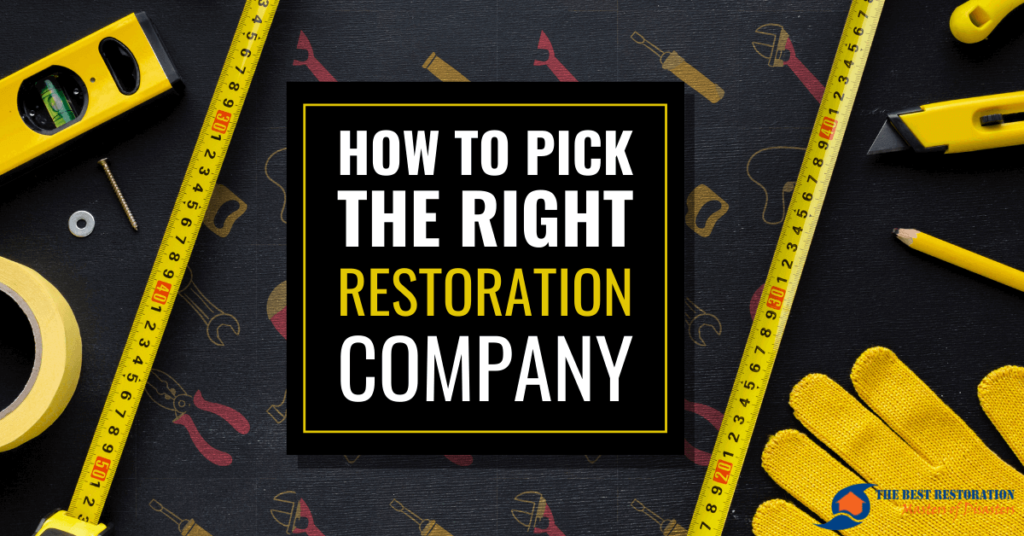
Conclusion
Professional property restoration is a beacon of hope for property owners facing the aftermath of disasters. With a commitment to quality, expertise, and efficiency, restoration professionals play a pivotal role in restoring value, functionality, and comfort to properties, ensuring a brighter future for both homeowners and commercial property owners.

